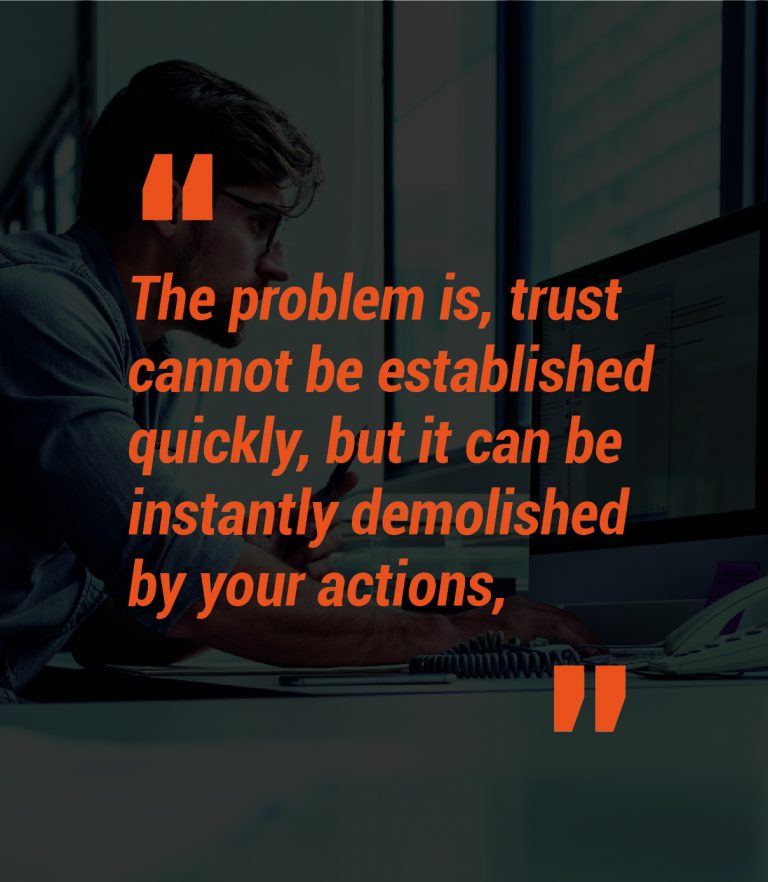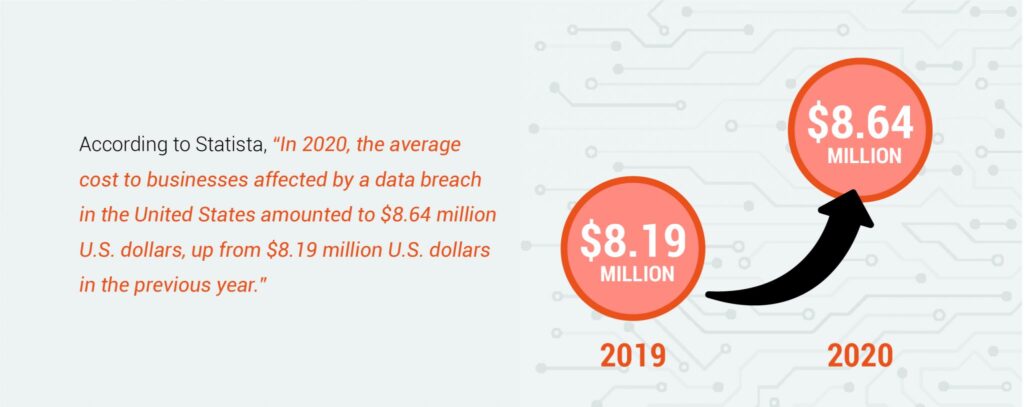Preemptive IT Security Can Save Your Business. Before It’s Too Late

How much would it cost your company to go down for a day? For a week? This is not some hypothetical. It’s a reality many faced this spring when the pandemic forced businesses to close their doors. Law firms, in particular, stood to significantly lose money since many attorneys bill hourly.
To put this problem in perspective, let’s run the numbers. Consider a law firm with a $400 hourly rate possessing 15 attorneys. If unforeseen circumstances stopped these individuals from working — and billing — for five days, the math would break down something like this: 15 attorneys x $400/hour x 5 days x 8 hours/day = $240,000

Of course, this figure is averaged, and many other variables could affect the results. If anything, the economic damage could be worse. The hourly rate could be higher. So could the lawyer count in a given office. However the math plays out, the effects could be detrimental to an organization’s profitability.
But there are other risks, no less catastrophic. Loss of trust tops the list. Imagine a corporation in the midst of a multi-million-dollar trade secret case. How would senior management react if they were suddenly unable to access crucial documents from their law firm because their doors were closed?

“The problem is, trust cannot be established quickly, but it can be instantly demolished by your actions,” explains Consumer Law Magazine. Based on this reality, it’s likely this corporation would never work with their law firm again. Worse, the corporation might even have cause for a malpractice suit should they be unable to access their crucial data.
Earlier, I mentioned the word ‘unforeseen’ when describing circumstances like this with potential to harm a business’ profitability and its perception. The truth is, no one could have foreseen the tragedy of COVID-19. But when it comes to cyber risks, every forward-thinking organization must mind-shift from reactivity to proactivity. Why? Because anything can happen. We just won’t know it until it does — and by then it might be too late.
Fortunately for our clients at Strategic Technology Solutions, COVID-19 never took them out of action. To understand why, let’s discuss preventative care. My organization offers private cloud computing. This means when the virus struck, our clients, many of them law firms, were able to turn on a dime.
As soon as shelter-in-place orders began these businesses could work from home using a cloud desktop profile as if they were still in the office. From a technical standpoint, nothing changed. They could access any document from anywhere just by logging in. Securely.
Here’s an example. We have a client with offices in Los Angeles, San Diego, and San Francisco. They bill upwards of $500/hour and possess about 80 attorneys. (I’ll let you do the math to understand how much they stood to lose being down for even a few hours.)
Based on private cloud servers we had already set up we quickly migrated their entire company to remote working without ever going onsite. Not only did this keep the firm from skipping a beat when responding to clients, it eliminated untold employee frustrations. Instead of pressuring staff members to find workarounds, we offered a seamless transition of data not dependent upon location.

The value of this data cannot be overstated. Displacing big oil, information is now the world’s most valuable commodity. We have all heard horror stories about security breaches, but what are the quantitative effects? According to Statista, “In 2020, the average cost to businesses affected by a data breach in the United States amounted to $8.64 million U.S. dollars, up from $8.19 million U.S. dollars in the previous year.”
Though these are stark figures, many businesses don’t take the danger seriously. Understandably, they’re focused on serving clients and earning money. They want to do their work without having to worry some nightmare scenario will take them down.

At least that’s how a different client of ours felt. For years, they had been content with our managed services knowing we set up their IT internal processes so nothing fell through the cracks. We also provided technology roadmaps as to the latest innovations and updates, so they were confident they were in compliance and secure.
Things were humming along swimmingly.
That is, until an employee made the mistake of inputting sensitive information into a phishing link. Once their email was compromised, the perpetrator seized control of her computer, locking her out of her own laptop.
Fortunately, we swooped in before real damage occurred. Swiftly analyzing weaknesses and disabling them remotely, we secured the data to halt any theft, preventing what could have been a devastating loss.
It’s my hope that sharing these stories opens your eyes to the importance of safeguarding your company’s most precious asset — beyond its people. Any one of these businesses could have been in a world of hurt should they have dismissed the importance of preventative defense. All of which begs the question, what is the cost of your company’s reputation?

It’s hard to calculate. However, we can begin to illustrate the loss in statistics. “According to a BrightLocal survey, 93% of consumers read online reviews. A separate study found that four out of five customers won’t buy from companies with negative reviews,” writes Jonas Sickler for Commpro. “These are scary facts for a hard-working business owner who has spent years building a trusted company only to watch its reputation spiral out of control.”
No business wants to experience this tragedy, especially when so many viable and cost-effective solutions abound. Nowadays, as the pandemic continues to redefine what it means to stave off threats, it is incumbent upon companies to ask what they can do to stay ahead of the curve. After all, their very survival depends on it.
If you would like to learn more about how we can help you prevent these types of problems before they ever occur, please contact me @ jwaryck@stspartner.com.